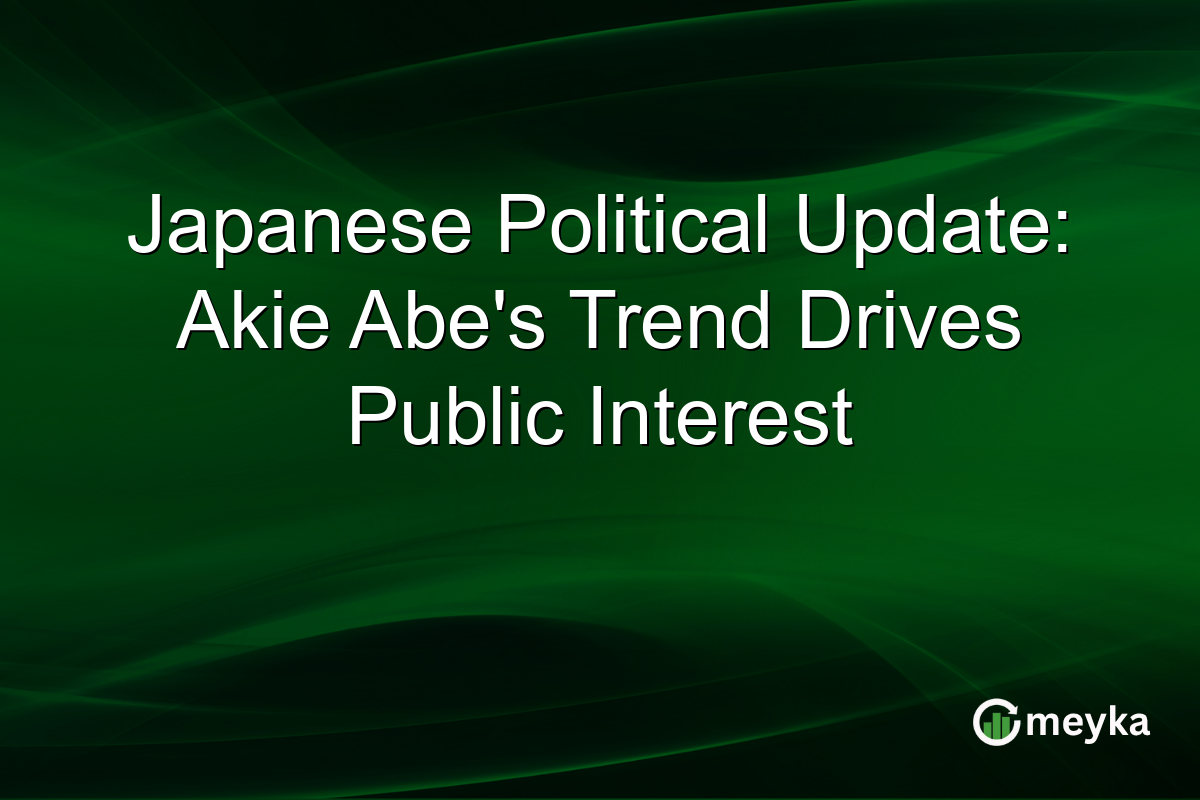Japanese Political Update: Akie Abe’s Trend Drives Public Interest
Akie Abe has been trending in Japanese politics, capturing increased public interest. With her renewed prominence, discussions around political narratives and policy directions intensify. As the widow of former Prime Minister Shinzo Abe, her influence resonates deeply within political circles. This surge of attention suggests potential shifts in public opinion and domestic policymaking.
Akie Abe’s Influence in Japanese Politics
Akie Abe’s recent trend indicates her growing influence within Japanese politics. Known for her outspoken nature, she often stands out from typical political figures. Public interest in her activities signals a desire for more diverse voices in political discourse. Akie’s advocacy extends across education, cultural issues, and social initiatives, which resonate widely among civilians.
This increase in attention not only highlights her impact but also calls for potential changes in policy focus. Analysts suggest that her popularity could encourage politicians to diversify their platforms.
For more insights, visit this X link.
Public Interest and Policy Implications
The rising public interest in Akie Abe could shape upcoming policy debates. As a result, political parties may need to adapt to these shifts, especially on issues Akie advocates passionately. Topics like gender equality and innovative education reforms are likely to gain traction.
Historically, public figures who gather significant attention often influence legislative priorities. Akie’s growing prominence may lead to substantial political discussions in upcoming sessions. Her ability to capture public sentiment aligns with social trends demanding more inclusive governance.
Trending News and Social Media Impact
Social media has amplified Akie Abe’s presence, drawing widespread notice both locally and globally. Her recent statements and public appearances have become focal points for trending news. This viral effect suggests how digital platforms now play a crucial role in political mobilization.
Social networks amplify public discourse, reflecting broader societal concerns. They potentially reshape political landscapes by empowering figures like Akie to reach vast audiences. With more citizens engaging online, politicians can harness this momentum, aligning their policies with prevailing trends in public interest.
Final Thoughts
Akie Abe’s current trend in Japanese politics marks a pivotal moment. Her influence could steer political conversations towards more inclusive and diverse policies. As public interest in her grows, political figures may increasingly align with issues she champions, such as gender equality and educational reform.
This surge highlights a broader societal shift towards embracing diverse voices in governance. By capitalizing on her momentum, Japanese politicians can address public calls for change.
Ultimately, Akie Abe’s impact provides an opportunity to enrich political narratives and promote policies that cater to evolving public demands.
FAQs
Akie Abe is known for advocating gender equality, educational reform, and cultural awareness. Her initiatives often focus on social progress and inclusivity in Japan.
Akie Abe’s trend is due to her influential role in Japanese politics, her public appearances, and active engagement in social and cultural initiatives, which resonate with the public.
Through her advocacy and public engagement, Akie Abe shapes political discourse by spotlighting critical societal issues and encouraging politicians to address them in their platforms.
The public is interested in Akie Abe’s views on social progress, her influence in shaping political narratives, and her potential to impact policy decisions in Japan.
Politicians can respond by aligning their policies with the issues she promotes, such as gender equality and educational reforms, reflecting the public’s evolving interests.
Disclaimer:
This is for information only, not financial advice. Always do your research.






